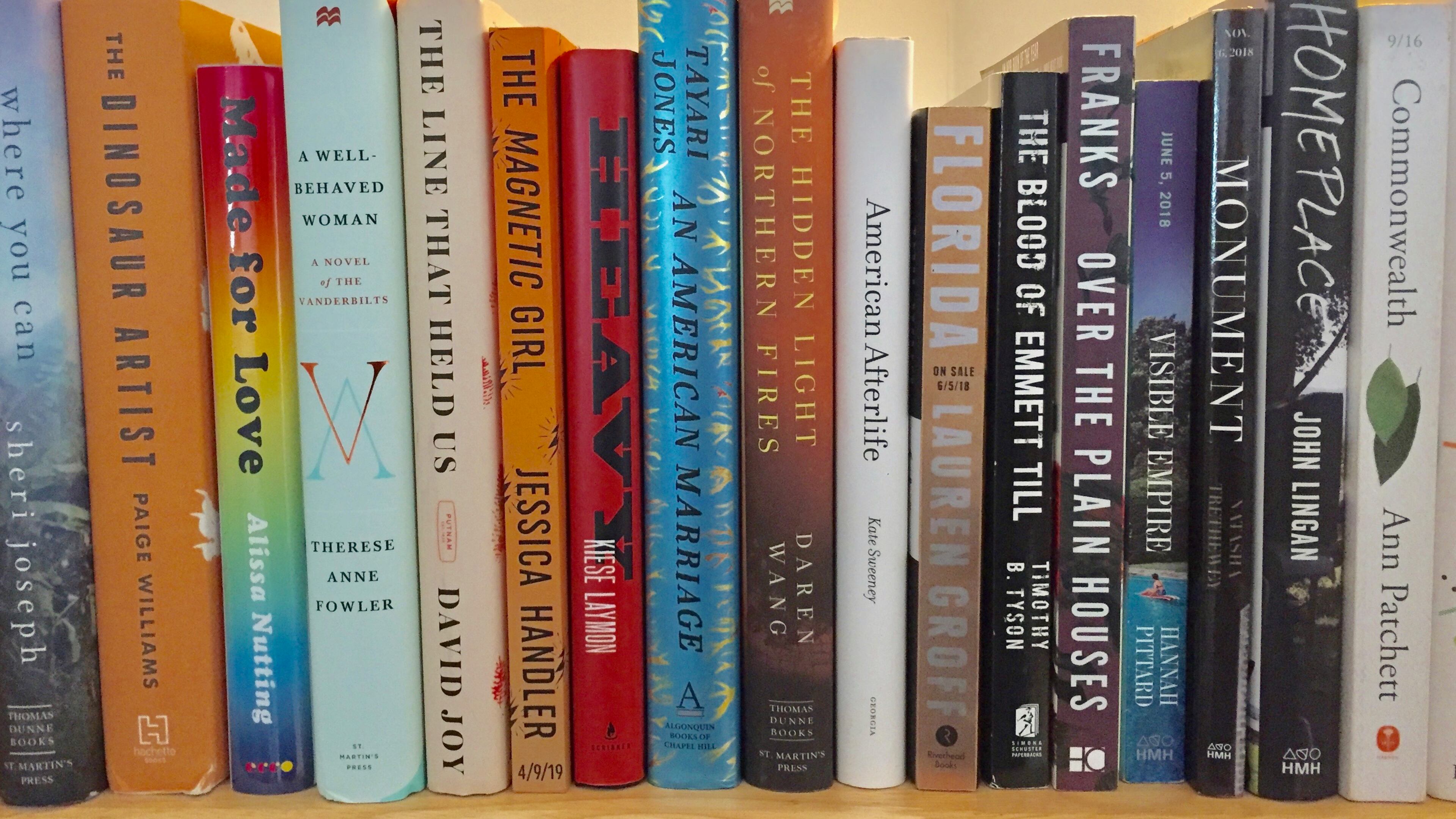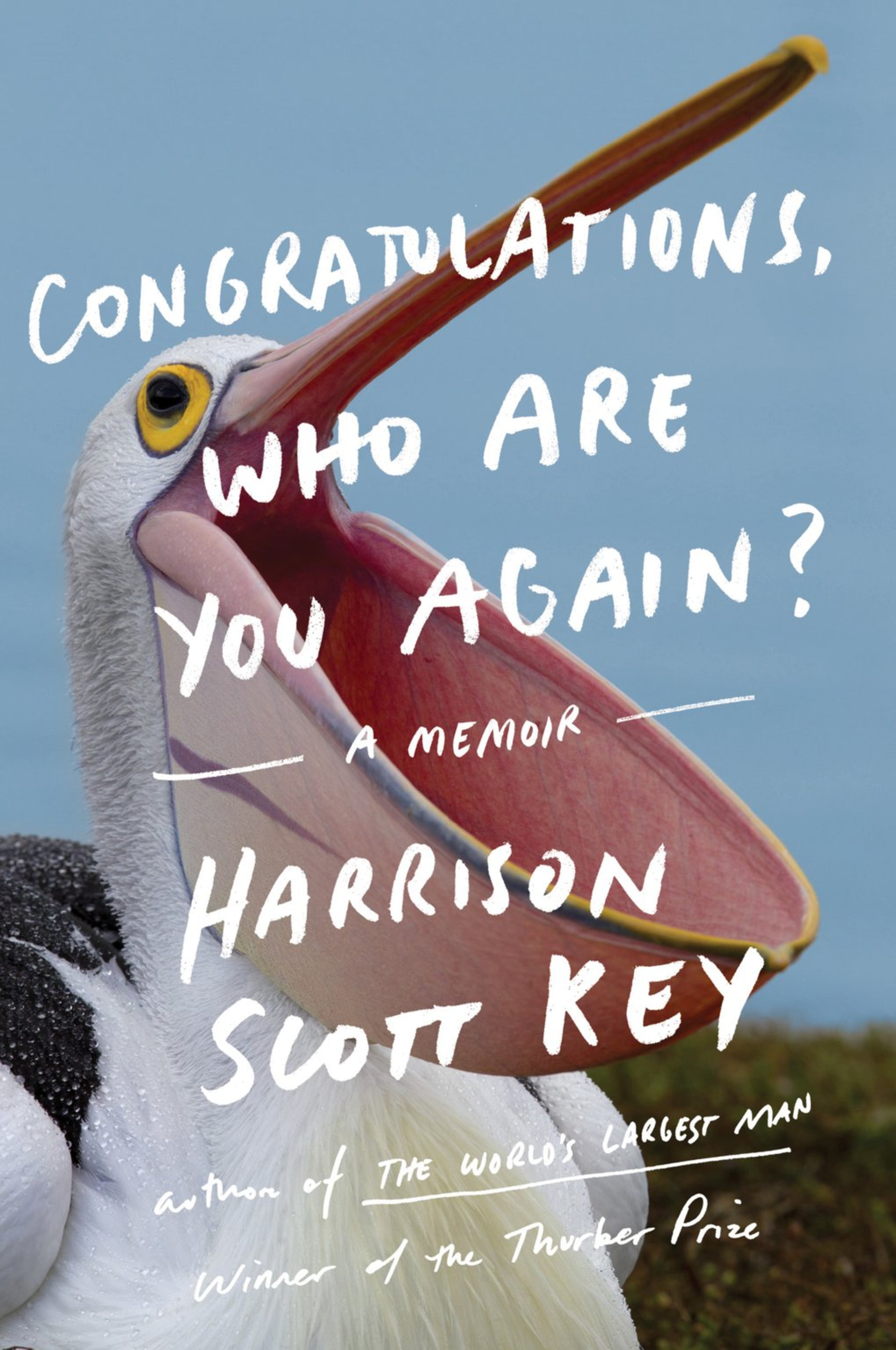Second memoir reflects on first one

Independent booksellers everywhere, those blessed and heroic souls, may have a hard time deciding where to display Harrison Scott Key’s new book, “Congratulations, Who Are You Again?”
Like Key's debut book, "The World's Largest Man," which won the 2015 Thurber Prize for American Humor, this follow-up is a memoir that wouldn't be out of place in the comedy section. It could also fit into myriad other categories, such as heath and fitness ("As you are driving through the South, your healthiest breakfast option is to stop at a convenience store and eat all the napkins.") or parenting ("Your dream has to disappear, just for a second, as you wash boric acid off the wailing baby.").
But there’s a less obvious category it could be lobbed into, and that is self-help. Because in writing about the trials and tribulations of publishing his first book, Key breaks down how he got famous enough that people at Waffle House request his photo. He doesn’t do this with “maddeningly vague” platitudes, as is so often the case, but with “painfully specific” technical advice. He says things like, “I want to tell you how I learned to write a story,” and then he does. He gives you the recipe, complete with near-exact measurements.
Better yet, the author has the credibility to back up this generous technique of enlightening others while reflecting on his own “meteoric rise from obscurity to slightly less obscurity.” He’s a contributing editor at the Oxford American and teaches at the Savannah College of Art and Design in Savannah, after having taken a speech-writing job at the university in 2007. He credits SCAD’s prominent co-founder Paula Wallace for aiding in his progress: “In heels, she seemed at most, two feet tall, the world’s tiniest college president, in possession of some secret faith that somehow, I could do better.”

But let’s back up for a moment. Key is coming from the vantage point of having already written a memoir largely about growing up in Mississippi, so while his sophomore work is a continuation of themes such as manhood, irony and beauty, he doesn’t need to dwell on the early details of his life this go around. He does, however, discuss his time as a schoolboy in the context of his dream’s development, establishing that he had ambition at a young age but didn’t know what form it would take. He later meets his wife, and they have three daughters, all while Key tries and fails for years — “4,195 days” — to publish a book. That is, of course, until he succeeds.
The publication of Key’s first book launches him into another journey, one that sounds as intense and spirit-testing as the one he took to get there. The memoirist obsessively reads online reviews, becomes his own social media intern and undergoes a months-long book tour from Brooklyn to Fairhope, Ala. He encounters testy old friends, enthusiastic fans and, occasionally, dismal turnouts.
It’s only after he nearly has a nervous breakdown from “the pressure to be amazing” that he realizes seeing his children “experience raw wonder was far more exhilarating than any dream, that the roar of any audience’s laughter was a thrill that muted into the background of my daughters’ awe at a continental breakfast.”
It’s a classic case of the thing you were searching for being in front of you the whole time, but it’s so satisfying to watch him get there.
Even though Key divulges the formula for how he writes so humorously, that doesn’t make his ability to do so any less impressive. Nor is this book only interesting to aspiring writers. It’s for anyone who has some kind of American dream and wants to be energized in a scary time-is-running-out-but-only-if-you-let-it kind of way. The book sugarcoats nothing about the grueling parts of forgoing safety for the pursuit of a life’s calling. It is an antidote to the ever-creeping complacency that comes for adults who are in danger of “not remembering the name of the dream they once had, until it’s too late.”

But having goals is not required to enjoy “Congratulations, Who Are You Again?” The tale is also for anyone who likes to read moving stories about the complexities of family life, or who simply admire strong writing that paints a picture in the mind’s eye. When Key describes a man as having “thick editor eyeglasses and lots of shiny black Connecticut hair and a voice like a disc jockey on some obscure college town jazz program airing at midnight,” you visualize exactly that. When he talks about Hemingway slugging “every third audience member just to demonstrate his overwhelming virility” or NPR’s “Our Lady” Terry Gross calling someone a terrible person in a really nice way, you laugh out loud.
We learn that in the process of creating “World’s Largest Man,” Key writes an entire memoir and then weeps upon reading the “amazing disaster” a month later. Thankfully, he starts over.
Memoirs are often the purview of celebrities or people with harrowing life experiences, but Key proves that emphasizing the relate-able struggle of achieving a dream can be just as compelling. With his rhythmic, hypnotizing cadence, the author incites laughter by matter-of-factly pointing out life’s absurdities in a tone that’s absent of animosity or bitterness. “Congratulations, Who Are You Again?” may defy categorization, but it belongs in the hands of many a reader.
NONFICTION
‘Congratulations, Who Are You Again?’
By Harrison Scott Key
HarperCollins
336 pages, $15.99

